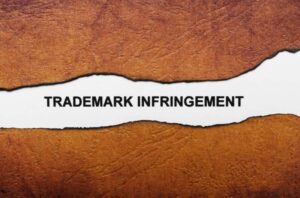Trademark Infringement Defenses
- Nov, 16, 2021
- A M
- Business Attorneys
Defense To Trademark Infringement
Trademark Defenses
Businesses often use trademarks to differentiate themselves from their competition. A trademark can be a word, design, or a combination of designs and symbols that identify a unique service, product, or brand. A trademark also allows customers and clients to identify companies and unique products that they want.
But just because you have a trademark does not mean that the product or service you provide is completely protected from trademark infringement. If you are a victim of trademark infringement, you can pursue a civil lawsuit in federal court. You as the plaintiff has to prove that the trademark belongs to you and not the other party. If you have questions regarding trademark infringement contact an experienced business law lawyer near you.
Things You Need To Know Before Taking Legal Action
Trademark Infringement Affirmative Defenses
 It’s important for startups, entrepreneurs, and established companies to know how trademarks work and the rights they have when mounting a defense in trademark infringement situations. Taking legal action is important because your trademark is the only way consumers can identify your products.
It’s important for startups, entrepreneurs, and established companies to know how trademarks work and the rights they have when mounting a defense in trademark infringement situations. Taking legal action is important because your trademark is the only way consumers can identify your products.
When you sue a party for trademark infringement your claims only have a chance of success if they meet the “likelihood of confusion” standard. That means that you only have a case if this infringement would cause consumers confusion about who made the product.
The court requires that your trademark be recognizable and strong for it to listen to your case. The products or services represented by your trademark must also be similar to the goods or services of the other party. There should also be striking similarities between the marks and in how the goods are marketed.
For example, if a computer developer or seller were to name their company and their products Microsoft, this could cause consumer confusion. But if somebody named their pillow company Microsoft, consumers won’t experience difficulty or confusion when distinguishing the products.
Consequences Of Trademark Infringement
Trademark Affirmative Defenses
After the plaintiff shows the court how the use of the trademark in commerce has caused confusion in the market and how it caused damages, the defendant may face the following consequences:
- The defendant may be ordered to reimburse the plaintiff for losses
- The defendant may have to pay the court fees of the plaintiff
- Goods with an unauthorized trademark may be seized
Defenses For Trademark Infringement
Trademark Infringement Examples
People who face trademark infringement cases have several options for a defense. The best option depends on the circumstances and evidence in the case. Some common defenses include:
- Parody: Your lawyer can argue that you used the trademark for parody, which would introduce the First Amendment into the equation because of freedom of speech.
- Estoppel: You can argue that the plaintiff implicitly or explicitly permitted the use of their mark.
- Fair use: Descriptive fair use involves using the mark for its descriptive meaning to describe your product. Nominative fair use involves using the trademark in reference to the trademark owner’s products.
- The doctrine of Laches: You can claim that the plaintiff unreasonably delayed in enforcing its trademark rights.
- “Unclean Hands”: You can argue that the plaintiff lied or acted improperly or illegally in relation to the trademark. This only works if punishing the plaintiff in the interest of the public outweigh preventing the defendant from using the trademark.
- Contesting registration: You can challenge the registration of the trademark especially if it was registered just a few years ago.
You May Also Be Interested In…
- Seller Responsibility After Closing
- What Does The Law Say About Lis Pendens?
- What Are Adverse Possession Laws?





